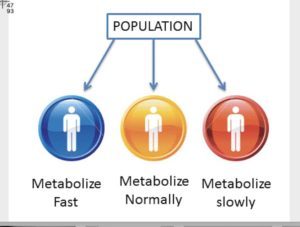Vaccine Application_of_pharmacogenomics_to_vaccines
This paper discusses the hypothesis of the ‘immune response gene network’ and genetic (and bioinformatic) strategies to study associations between immune responsegene polymorphisms and variations in humoral and cellular immune responses to prophylactic viralvaccines, such as measles–mumps–rubella, influenza, HIV, hepatitis B and smallpox.Immunogenetic studies reveal promising new vaccine targets by providing a better understanding of the mechanisms by which gene polymorphisms may influence innate and adaptive immune responses to vaccines, including vaccine failure and vaccine-associated adverse events.
The goal of pharmacogenomics and vaccinomics is to identify genetic variants that predict adverse responses to vaccines, predict aberrant immune responses, contribute to personalized therapy and that predict susceptibility to diseases and response to vaccines.
VLA Comment.
It is hard to believe that the establishment has known this relationship between polymorphism (the presence of genetic variation within a population) that will cause an adverse reaction from vaccines since 2009. And we just keep destroying all the emerging generations of mankind (and animals) What is not expressed in this paper is that ALL neonates and children not have the mature systems that address this assault.
Pharmacogenomics — the key to developing personalised medicines 2013
Vaccines
Vaccines are a class of medicines that are being viewed under the pharmacogenomic microscope. Variations in genes involved in virus binding and cell entry, antigen recognition, processing and presentation, immune effector cell function and immunoregulation are all crucial in an individual’s ability to propagate a co-ordinated attack against an invading pathogen. Associations in response with genotype or phenotype have been recognised with vaccines against measles, mumps and rubella, influenza, HIV, Hepatitis B and smallpox.4

